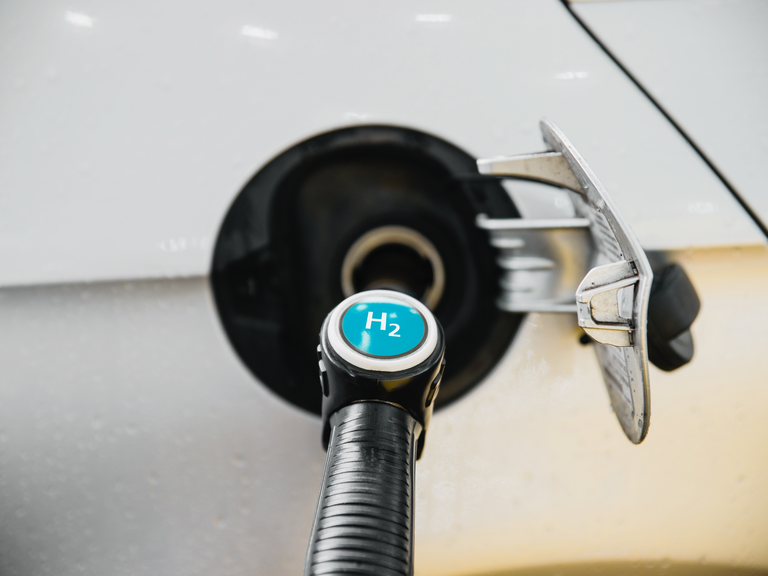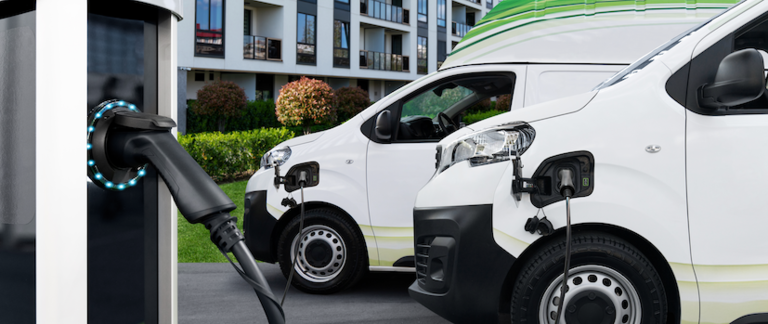Will green hydrogen replace electric vehicle technology?

As electric cars have yet to become the norm, should we look at alternative fuels instead?
Green hydrogen has emerged as a promising alternative fuel in our ceaseless quest for sustainable energy sources. But is it really going to transform how we power our eco-friendly vehicles?
What is green hydrogen?
Produced by splitting water into its two components — hydrogen and oxygen — green hydrogen is an intriguing green energy. Unlike gray and blue hydrogen, which are derived from fossil fuels and natural gas, green hydrogen leaves virtually no carbon footprint when produced using renewable energy, such as wind turbines.
To create enough power to propel a vehicle, hydrogen fuel cells combine hydrogen stored in a high-pressure tank with oxygen from the ambient air, producing electricity. This electricity then powers the car's electric motor.

The clean energy contender
Electric vehicles (EVs) are currently the frontrunner in the automotive industry, offering zero-emission transportation and increasingly competitive performance and range. But they're not without their limitations. EVs can face lengthy charging times, limited payload capacities, and the environmental cost of manufacturing batteries.
And while they don't produce tailpipe emissions, electric vehicles still indirectly contribute to greenhouse gas emissions due to the electricity they consume. And if that electricity comes from fossil fuels, the environmental benefits of EVs are significantly reduced. Could green hydrogen fill these gaps?
When used as a fuel, green hydrogen produces zero carbon emissions. This makes it an ideal energy solution for a world striving to reduce greenhouse gas emissions and combat climate change.
But what really sets green hydrogen apart as an alternative fuel is its higher energy density compared to batteries. Producing EV batteries is an energy-intensive process, often involving the mining of rare earth metals. This can lead to significant environmental degradation. However, advancements in battery technology and recycling programs are being developed to mitigate these.
Hydrogen fuel cell vehicles can be refueled at the same speed as internal combustion engine (ICE) vehicles, eliminating the lengthy charging times associated with EVs, and significantly reducing vehicle downtime, especially in commercial uses like hauling.

Comparing cost-effectiveness and scalability
In terms of price, EVs currently have the upper hand, with cheaper battery prices and more developed charging infrastructure making them the more desirable option.
The capital expenditure associated with green hydrogen production systems is also significant, primarily due to the price of electrolyzers — the devices used to split water into hydrogen and oxygen using renewable energy. The operational expenditure is also substantial, driven by the high electricity costs associated with the electrolysis process.
But all these things may change. According to a report from the Hydrogen Council, the cost of producing green hydrogen could fall by 50% by 2030 as the technology matures and scales up. This reduction could make green hydrogen a more cost-effective and sustainable alternative fuel source.

Which one is better?
The answer is — it depends.
The future of transportation is not just about choosing the best technology — it's about making the right choice for the right needs.
For example, hydrogen cars have a quicker refueling time compared to the lengthy charging times of EVs. This makes them suitable for energy-limited use cases like long-haul trucks and airplanes, where electric vehicles may fall short due to their limited range and charging requirements. Electric cars seem better suited for short to medium-range applications, especially in urban settings.
In short, we can look forward to a future with multiple clean, efficient, and sustainable options for getting around. It's not a question of one replacing the other, but rather combining both and using them to their strengths.
Have your say
Sign up for our newsletter
Why sign up:
- Latest offers and discounts
- Tailored content delivered weekly
- Exclusive events
- One click to unsubscribe


